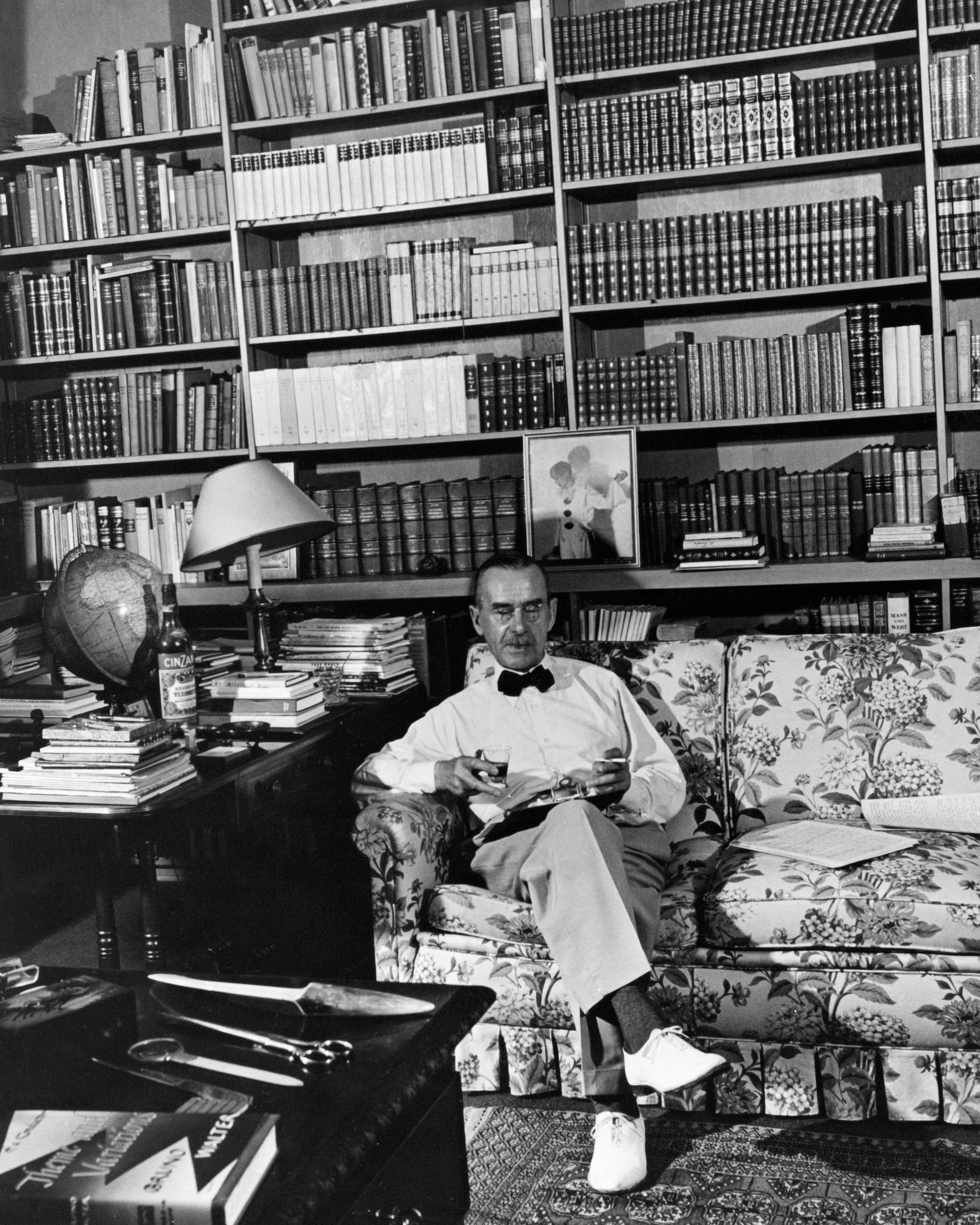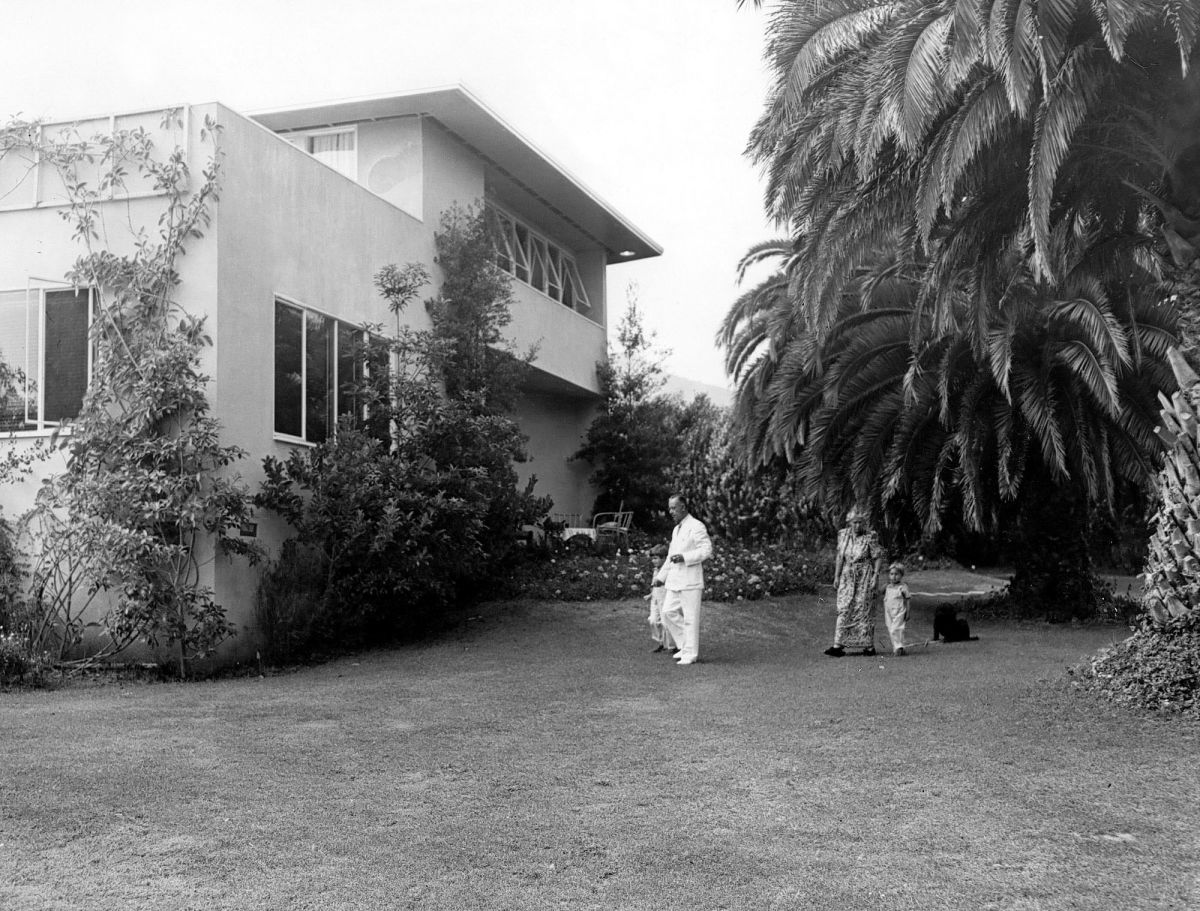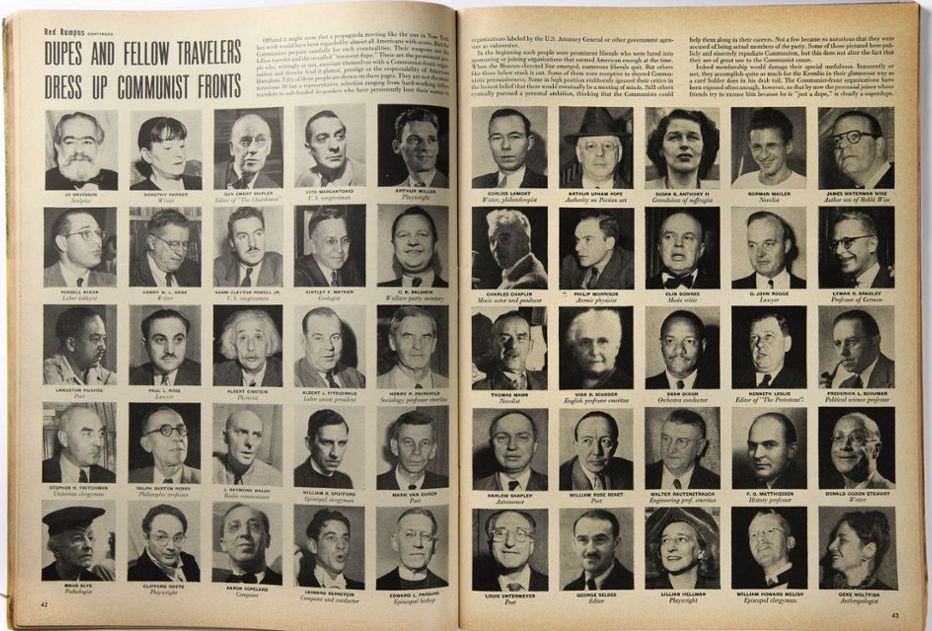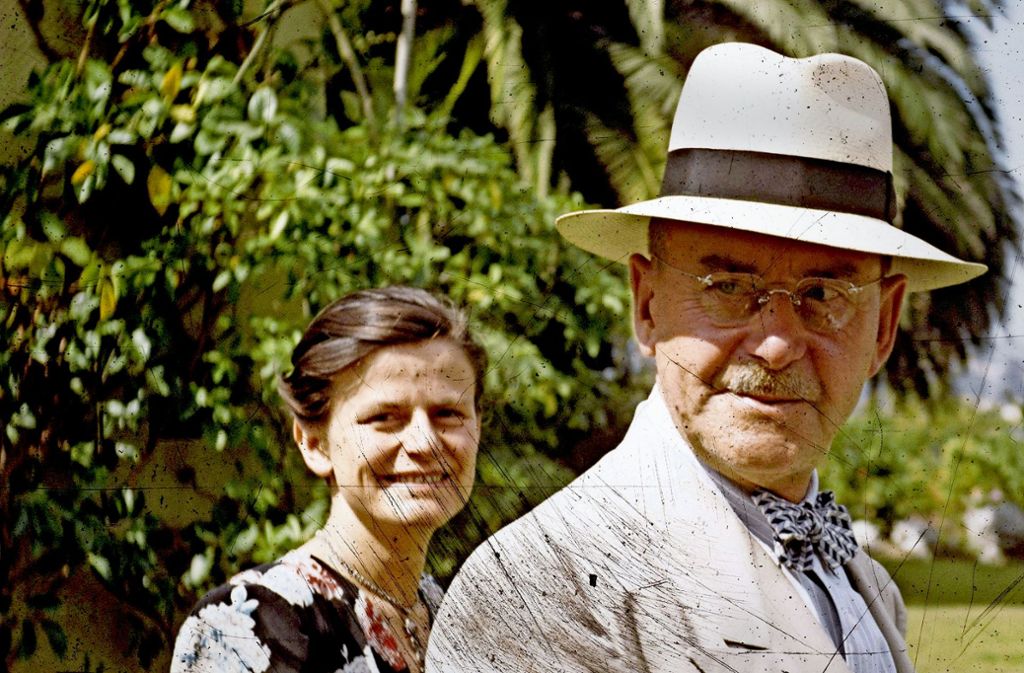
On March 9, 1940 Writer and Nobel laureate in Literature (1929) Thomas Mann (6 June 1875 – 12 August 1955), then resident in California, talked about the reasons for anti-Semitism in Nazi Germany on NBC radio.
Mann was a vociferous opponent of the Nazi party, a loud voice among the Exilliteratur – German literature written in exile by those who opposed Hitler’s regime.
In 1930, Mann had presented his “Address to the Germans: An Appeal to Reason”. The Nazis, he opined, were barbarians, crude philistines who knew nothing of culture. National Socialism, the politics of propagandists and demagogues, was the tool for Hitler and his fans who “despise the masses … while they make themselves the mouthpiece of vulgar opinion”. Nazism was antithetical to everything that was innately German. It was hatred “not of the foreigner but of all Germans who do not believe in its methods, and whom it promise[s] to destroy”. Nazis personify “the contempt of pure reason, the denial and violation of truth in favor of power and the interests of the state, the appeal to the lower instincts, to so-called ‘feeling,’ the release of stupidity and evil from the discipline of reason and intelligence.”
In 1940, Mann told listeners about the significance of Nazis targeting Jews:
The anti-semitism of today, the efficient though artificial anti-Semitism of our technical age, is no object in itself. It is nothing but a wrench to unscrew, bit by bit, the whole machinery of our civilization. Or, to use an up-to-date simile, Anti-Semitism is like a hand grenade tossed over the wall to work havoc and confusion in the camp of democracy. That is its real and main purpose.

Thomas Mann at his home in Pacific Palisades. 1941.
To Mann, Nazism’s murderous attack on Jews was “but a starting signal for a general drive against the foundations of Christianity, that humanitarian creed for which we are forever indebted to the people of the Holy Writ, originated in the old Mediterranean world. What we are witnessing today is nothing else than the ever recurrent revolt of unconquered pagan instincts, protesting against the restrictions imposed by the Ten Commandments.”
In October 1940, Mann began monthly broadcasts, recorded in the US and flown to London, where the BBC broadcast them to Germany on the longwave frequency.
The search for democracy never rests. . The rise of McCarthyism in America prompted Mann’s return to Europe in 1952. He died in Switzerland in 1955.

Only a few years lay between Roosevelt’s shining example and the descent into a toxic political climate of intolerance and polarization, prejudices and conspiracy theories, and the state-led erosion of fundamental rights and an independent judiciary. While the Marshall Plan was enabling the ruined Germany to start afresh, economically and morally, in California Thomas Mann found his friends, exiles, artists, intellectuals, his own children Erika, Klaus, and Golo, and eventually himself the target of McCarthy’s zealous Communist hunters.
Under the heading “Dupes and Fellow Travelers,” Life magazine counted him among the illustrious ranks of suspects ranging from Charlie Chaplin and Leonard Bernstein to Arthur Miller and Albert Einstein.

Thomas Mann and Elisabeth Mann Borgese in the garden of the villa in Pacific Palisades (c. 1946) Via
Lead image: Thomas Mann in his Pacific Palisades home, where ‘books, books, books’ covered floor-to-ceiling shelves. Photograph: Ullstein Bild. Via: Open Culture, Anorak
Would you like to support Flashbak?
Please consider making a donation to our site. We don't want to rely on ads to bring you the best of visual culture. You can also support us by signing up to our Mailing List. And you can also follow us on Facebook, Instagram and Twitter. For great art and culture delivered to your door, visit our shop.

